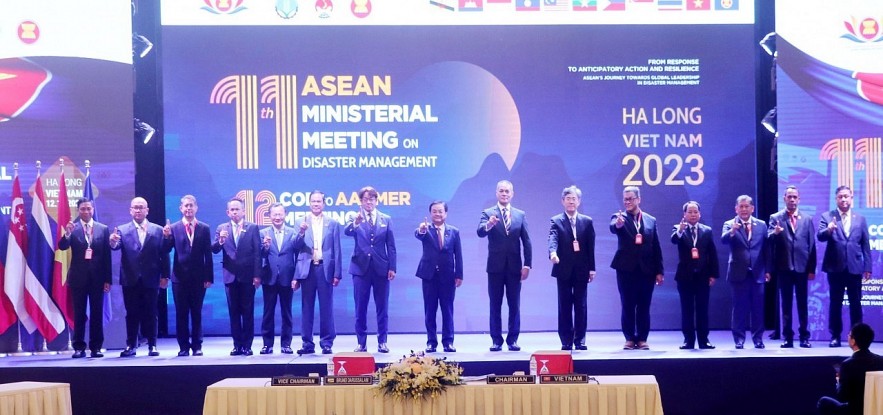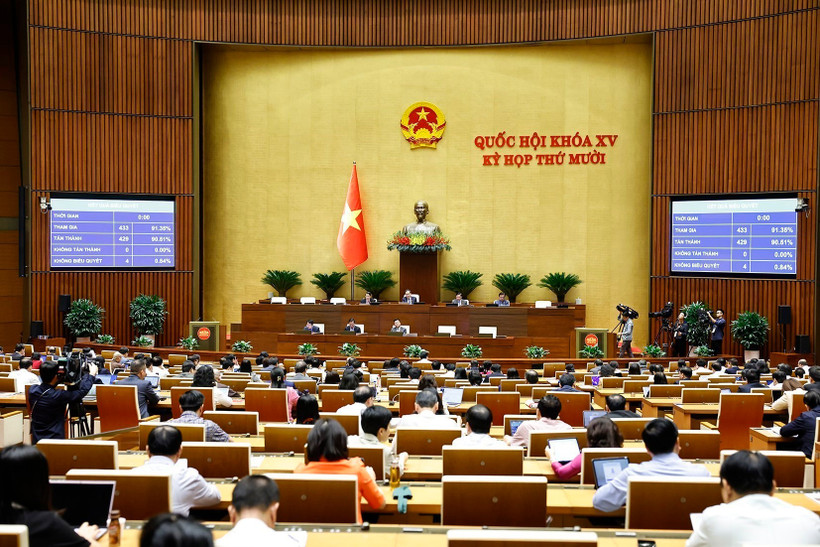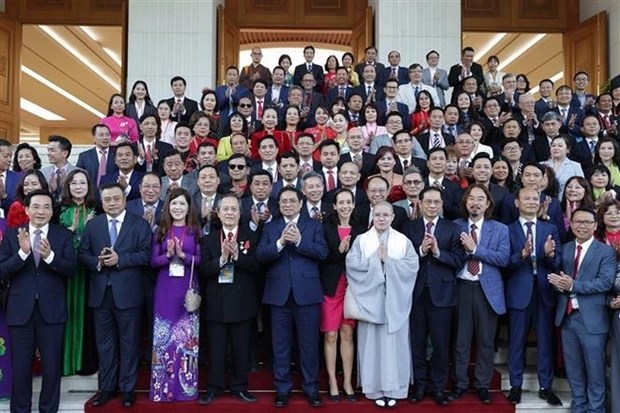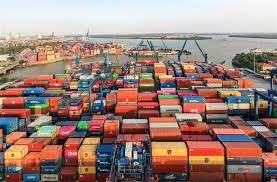Southeast Asia, the world's fastest-growing region, is also one of the most vulnerable regions to natural disasters that are increasing in intensity and frequency.
Data from the United Nations Economic and Social Commission for Asia and the Pacific show that natural disasters cause economic losses to countries in the region averaging up to US$86.5 billion annually.
According to the Southeast Asia Climate Outlook Survey Report 2023 published by the Institute of Southeast Asian Studies last September, nearly 50% of ASEAN people are clearly aware that climate change poses a serious threat to their lives.
Survey results show that ASEAN people identify the three biggest impacts of climate change today as floods, heatwaves and droughts.
Outstanding cooperation mechanisms
At 7:58 a.m. on December 26, 2004, a magnitude 9.1 earthquake off the coast of Northern Sumatra island caused a tsunami up to 17.4 meters high that swept across the coastal areas of 14 countries, including Indonesia, Thailand, India, Sri Lanka, claimed the lives of 230,000 people.
This event was the driving force for the birth of the ASEAN Agreement on Disaster Management and Emergency Response (AADMER), laying a solid legal foundation for cooperation, technical support and resource mobilization in disaster management and emergency response in the region.
This is also the official channel to coordinate with United Nations organizations as well as relevant international organizations in responding to disasters.
Since its establishment in 2023, the ASEAN Committee on Disaster Management (ACDM) has continuously expanded cooperation with external partners including United Nations agencies, multilateral financial institutions and non-governmental organizations.
Natural disaster risk reduction is also one of ASEAN's top priorities to achieve the goals of the Sendai Framework for Disaster Risk Reduction as well as the 2030 Sustainable Development Goals.
 |
| Ministers and Deputy Ministers of ASEAN member countries attended the 11th ASEAN Ministerial Meeting on Disaster Management in Ha Long city, Quang Ninh province on October 12, 2023. Photo: TTXVN |
Affirming Viet Nam's role and responsibility
In 2023, Viet Nam played the role of Chair in ASEAN cooperation on natural disaster management. Accordingly, the 11th ASEAN Ministerial Meeting on Disaster Management and ACDM sessions, along with many other related activities chaired by Viet Nam, were held in our country.
Viet Nam proposed the topic "From Response to early Action and Strengthening Resilience - ASEAN Moves Towards the Goal of Global Leadership in Natural Disaster Management."
It emphasizes changing the approach to natural disaster risk management of ASEAN countries, moving from responding every time a natural disaster occurs to taking early action.
ASEAN countries' increasing emphasis on early action demonstrates their increased commitment to innovating approaches to natural disaster risk management and reduction.
Notably, the 11th ASEAN Ministerial Conference on Disaster Management (AMMDM), taking place in Ha Long city, Quang Ninh province from October 8-13, adopted "Ha Long Declaration in Early Action in ASEAN Disaster Management."
The statement affirms the Minister's commitment in the field of disaster management of ASEAN countries to strengthen the implementation of early action in disaster management in the ASEAN region, especially implementing the three main pillars.
These pillars include risk information, forecasting and early warning systems, planning, operations and implementation, leveraging pre-arranged financial resources.
Viet Nam's "proactive, positive and responsible" spirit in ASEAN cooperation continues to be promoted in cooperation on natural disaster management.
Viet Nam strives to demonstrate its leading role in ASEAN not only in the fields of security and economics but also in the socio-cultural aspects, ensuring safety for the community against natural disasters.
Q.Hoa t.h / Vietnamtimes











